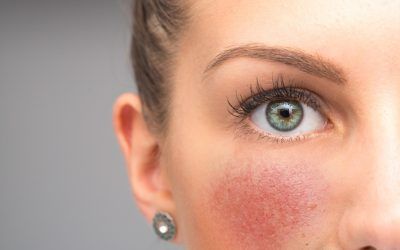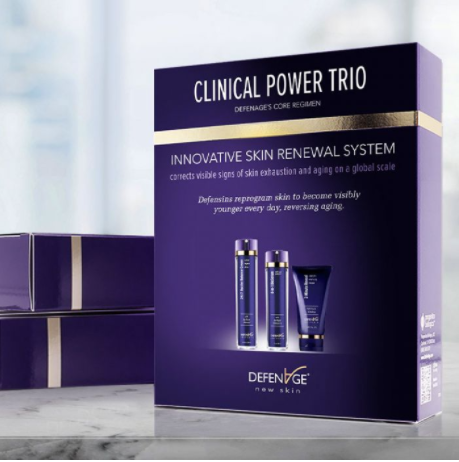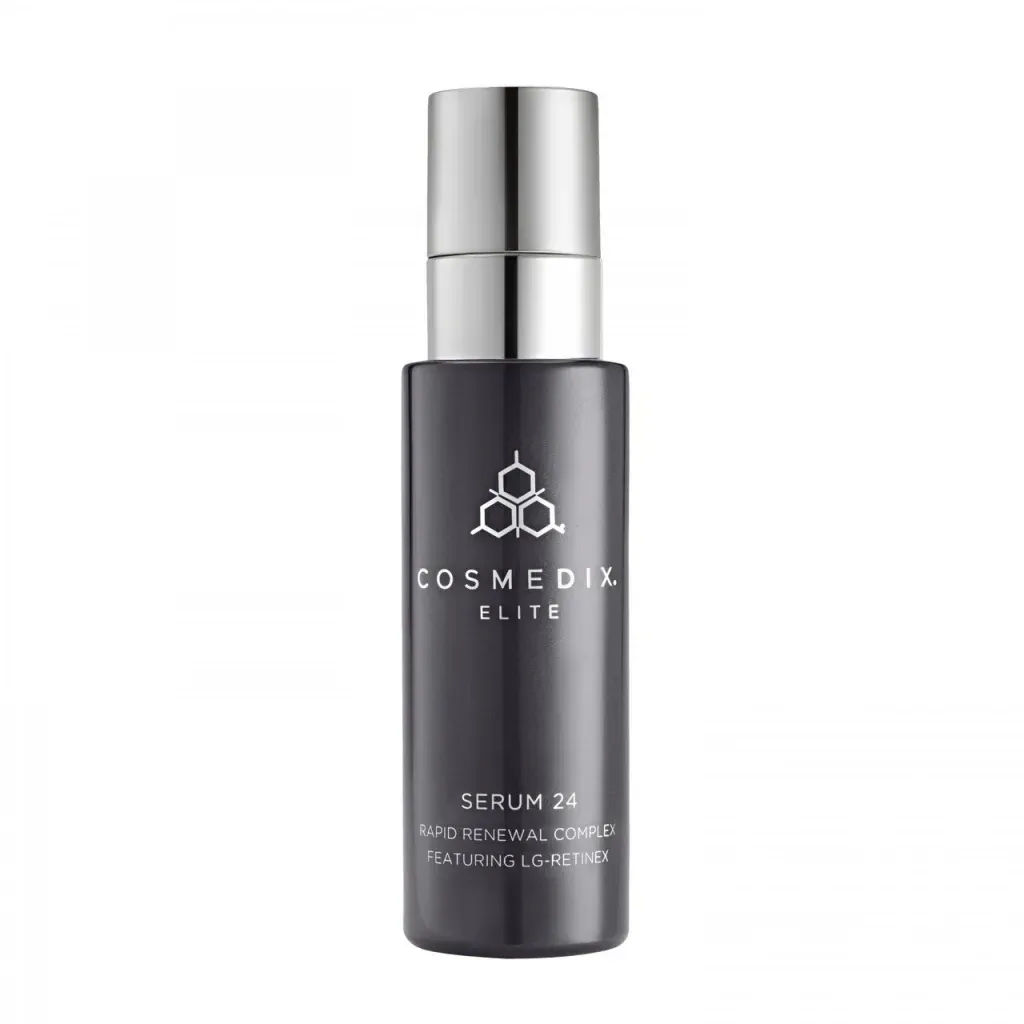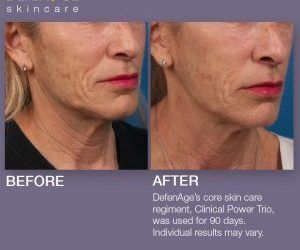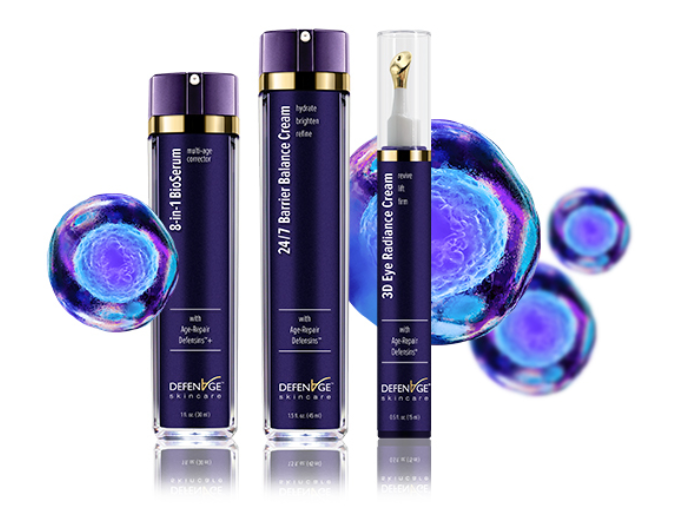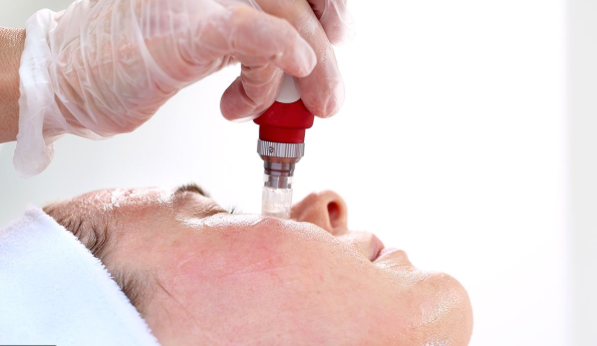Staying Healthy Both Inside & Out
The Importance of Your Skin Barrier and Moisturizing (Part 1)
A recent pilot study has linked keeping a proper moisture barrier may have an interconnection to a person’s health and wellbeing. Researchers at UC San Francisco found that age damaged skin in older adults could be related to a variety of conditions such as heart disease, Alzheimer’s, just to name a few. So, here’s what researchers found, as we age our skin barrier breaks down, which then leads to an increase in cytokines circulating in the body. Cytokines are proteins that signal there’s inflammation. If the cytokine level in the body is substantial, it will provoke inflammation throughout your system. This continuous inflammation over time then can lead to health issues.
Researchers were trying to figure out what organ of the body is big enough that even a small portion could cause such inflammation. Bingo! The Skin. As we age, the circulating cytokines increase, our skin gets dryer, itchier, acidity changes, and so on. Our skin barrier breakdown plummets as we age causing more inflammation. Young people don’t have as many circulating cytokines and young skin is plump and intact, a safer skin barrier (less aged). The experiment went like this, they took older adults (ages 58-95) and had them moisturize their bodies twice a day for 30 days. After 30 days, these adults had cytokine levels tested again and it seems these folks had a decrease in three different cytokines to that of a 30-year-old.
Wow! Let’s get back to that skin barrier. Even young skin can be compromised, people with eczema or psoriasis, for instance. These conditions break down the skin barrier at a younger age, so are these folks more susceptible to inflammation sooner then most? Is there a study linking eczema to Alzheimer’s? The sun in general will break down your skin barrier over time, including pollution, radiation, chemotherapy and the list goes on. Again, your skin is the largest organ of your body, take care of it, moisturize it, protect it, baby it.
Skin Barrier (Part Deux)
We now understand that moisturizing the body is important. What should you use? Which ingredients are going to be the most helpful in reducing inflammation? According to Skin Inc. magazine the July 2019 issue, Vitamin B3, also known as Niacin or Niacinamide, enhances the skin barrier. Niacin is found in meat, fish, beans, cereal, eggs, and vegetables. Our body doesn’t make this particular vitamin, so we have to ingest it through the foods we eat. Studies have shown that a topical application enhances the skin barrier lipids! Niacin also helps reduce redness and pigmentation, increase elasticity, and has a bit of anti-inflammatory effect as well. I think this will be a great ingredient.
The skin barrier is SO important. The other ingredients you will look for are emollient oils and butters. Shea butter is good. Mango seed butter is good. See if you can get these ingredients in your moisturizer.
What I mean by oils are, sunflower oil, or sweet almond oil. These are just examples; you can be creative. These natural oils work well and they contain fatty acids that help support your skins moisture barrier. The oils and butters are over the counter, just be sure to go organic.
Another ingredient that is super important is hyaluronic acid. This stuff is a natural moisturizer and can hold in moisture 1,000 times its weight in water. It can repair your skin and lubricate!
Now anything with anti-oxidants like vitamin C, vitamin E, that would be the Skin Ceuticals; C, E, Ferulic acid, just add that to your regime. You should be using that already anyways.
Just e-mail me if you have any questions. I have two kids launched and only one at home. I am happy to help.
Product Suggestions:
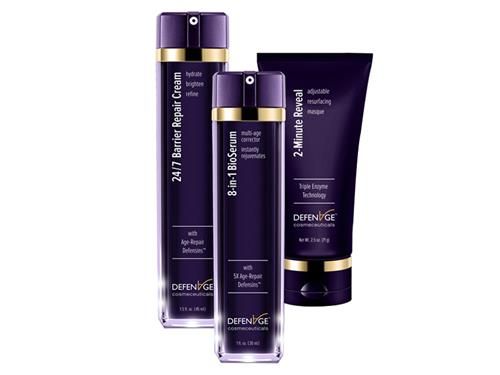
Defanage Skincare: niacin and lots of other good ingredients (see above)
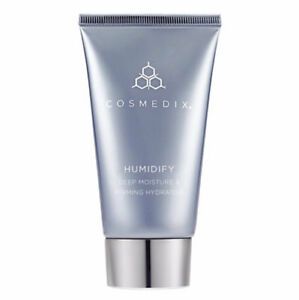
Humidify: Moisturizer for dry, denuded skin- niacin, shea butter, canola oil, rosewood oil
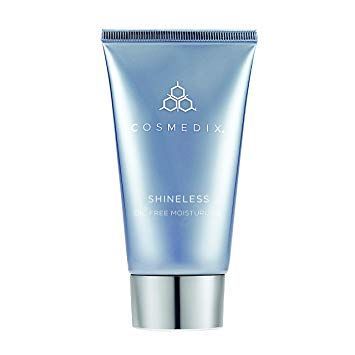
Shineless: moisturizer for oily skin- Niacin
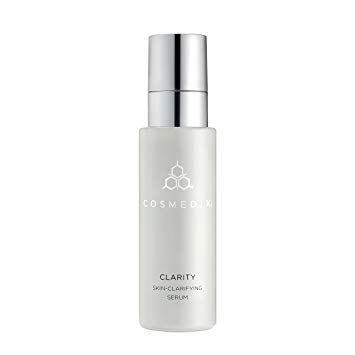
Clarity: serum for acne prone skin- niacin, sunflower seed oil, rosemary leaf oil (helps pores)
